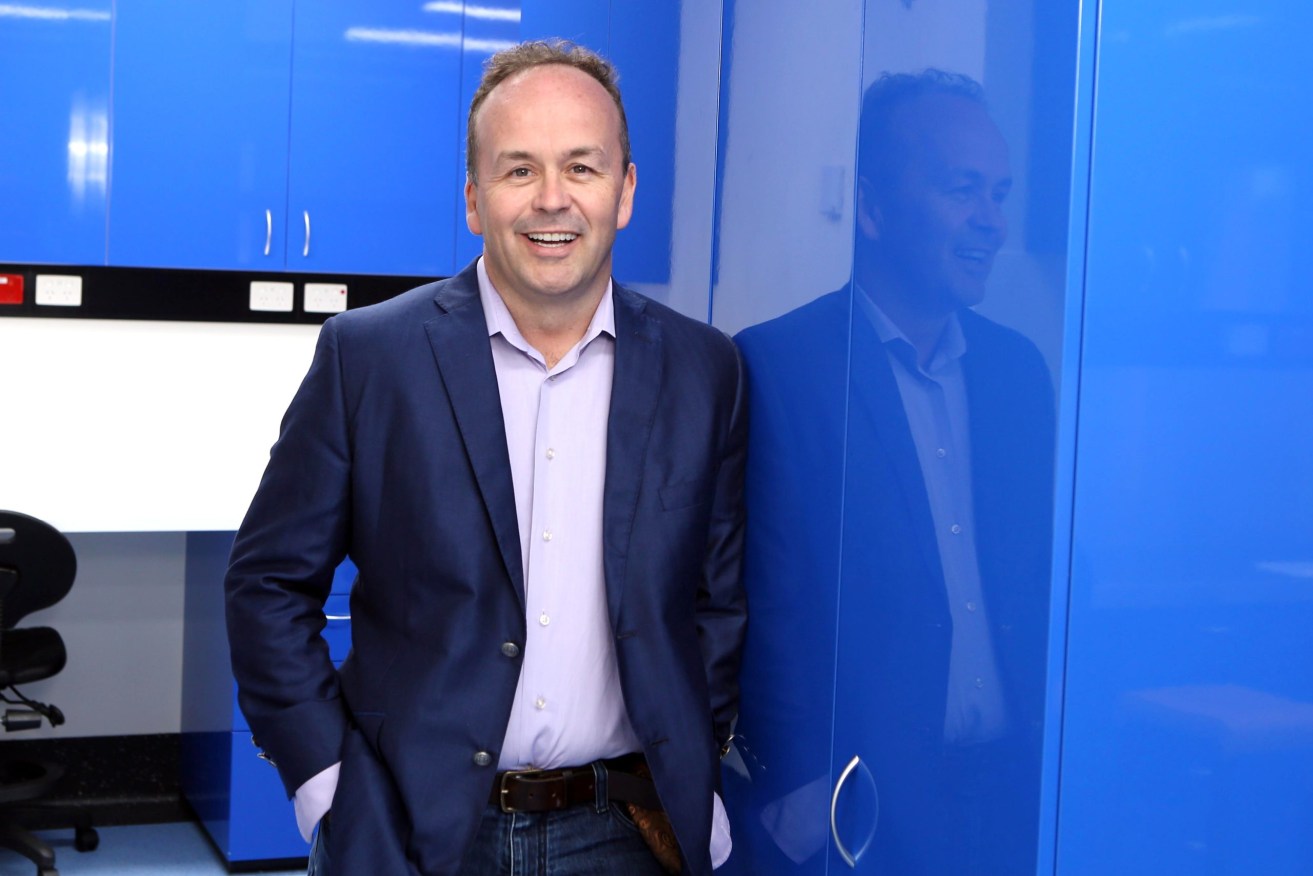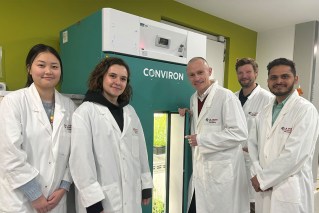Covid critical: How Brisbane medicos brought the world together to beat a deadly virus
An informal network of the globe’s most brilliant medical minds has been exchanging ideas about how to best respond to the Covid-19 pandemic. All thanks to a team of Brisbane physicians, writes Cindy Wockner.

Professor John Fraser helped bring together medicos from 54 countries via Zoom calls to share information on Covid-19, seek advice on how to treat patients and discussing symptoms and treatment. (Image: UQ)
Professor John Fraser could hear the fear and fatigue in his fellow medicos’ voices.
From around the globe his colleagues were pleading for advice on how to deal with the unfolding Covid-19 pandemic. People were dying in hospital wards, medical professionals were struggling to cope. Some had never seen anything like it.
Talking with other medical minds, workshopping how to deal with the unfolding global crisis, seemed like a good idea.
It was almost two years ago, not long after the World Health Organisation declared a pandemic, when Prof Fraser, from his base at Brisbane’s Prince Charles Hospital, along with his colleagues Gianluigi Li Bassi and Jacky Suen, decided to start talking, via Zoom, with colleagues in three to four other countries.
Initially it was Vietnam, Korea, China and Japan.
They discussed the virus and how to treat the most seriously ill patients. How to keep people alive and to keep themselves alive and functioning. Generally the calls were each Thursday evening
Before long, medicos from 54 countries, developed and developing nations with varying health systems, were tuning in to the Zoom calls, sharing information on Covid-19, seeking advice on how to treat patients, discussing symptoms and treatment.
Doctors from around the world, from Rwanda to Taiwan, New York, Paris and Vietnam and so many other countries, looked forward to the time, each week, they could sit down and discuss with others what was going on. It was cathartic, it was educational and it provided camaraderie for medicos in some of their darkest hours.
“We were all faced with not knowing what to do. The call was a safe space, people were saying ‘let’s try this, let’s try that’. People were listening to the call with the view that the wave was coming to hit their country next,” Fraser said.
It was like a million jigsaw puzzle pieces of information about the virus were out there and there was a desperate need to put them together.
So, the Covid-19 Critical Care Consortium, Covid Critical, was born in Brisbane to help facilitate a global effort in the fight against the deadly and rapidly spreading virus.
Fear was everywhere as countries realised a wave was coming and they had no chance of outrunning it.
The weekly calls became a safe space for colleagues to come together. Fraser says they were like “cathartic confessions”.
Fraser remembers one call. A brilliant junior doctor from Vietnam was seeking Fraser’s advice about a patient she had on ECMO, extracorporeal membrane oxygenation or an artificial lung.
The artificial lung was invented by American physician and medical researcher, Professor Robert Bartlett. An Emeritus Professor of Surgery at the University of Michigan Medical School, he is a kind of medical rockstar in his field.
It so happened Bartlett was on the call and Fraser connected him with the Vietnamese doctor.
“She’s accessing one on one time with the man who invented the ECMO,” Fraser says of the amazing moment.
The patient ended up getting better and went home from hospital. A lovely tale from awful times.
Fraser says another interesting aspect of the calls was the cultural differences in relation to what was acceptable and what was not. Such as when you had two critically ill patients, both needing ventilation to survive, but only one available ventilator. How do you decide who gets it when one is a mother and the other is a convicted criminal?
That all depends on which country you are in and which cultural groupings you are dealing with. Fraser said it was fascinating hearing about these differences
From its headquarters at the Prince Charles Hospital, the consortium involves intensive care units at more than 380 hospitals around the world. It now contains a collection of 35 million pieces of data.
The team has been securely collecting and disseminating daily data of patients who have been hospitalised due to the virus. It has taken more than 220,000 hours of data entry.
“Queensland has been fortunate not to have experienced an outbreak so we’re in a good place to support the collection of this complex information,” Fraser, an intensivist physician at the hospital, said.
“This real-time collection of 35 million pieces of data will enable better decision making and better patient outcomes. This data will inform, support and empower clinicians in moments that matter – at patient bedsides.
“Having this world-class information at their fingertips is as good as a reassuring shoulder to lean on when our doctors and nurses need it the most.”
And with the Omicron variant of the virus now becoming dominant and the explosion of cases in southern states and a corresponding sharp escalation of cases in Queensland, the data from the Covid Critical collective will become even more important.
“We are more prepared, we have the data, we know how we can treat such individual circumstances, whether by age, sex, height, weight and other medical conditions. We can better predict outcomes and have greater confidence in the treatments that are working,” Fraser said.
Covid Critical is coordinated by the Critical Care Research Group at The Prince Charles Hospital and the University of Queensland and is supported by public donations through The Common Good charity and by Queensland Health.












